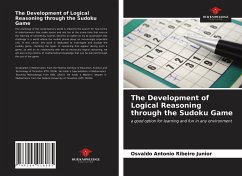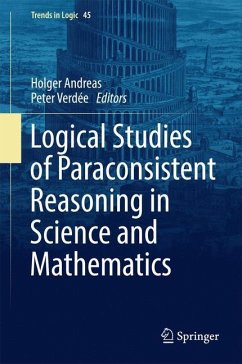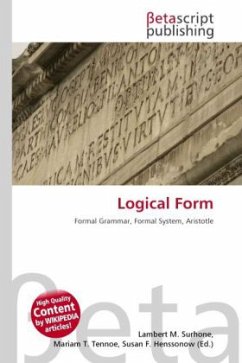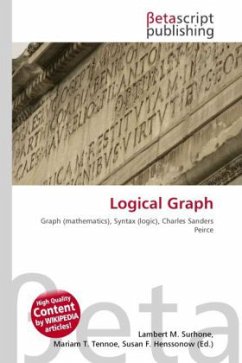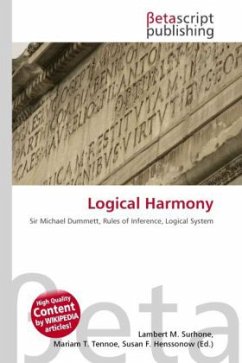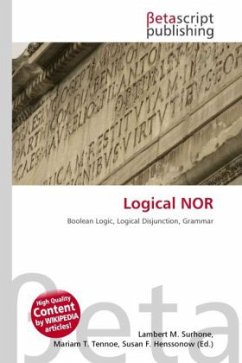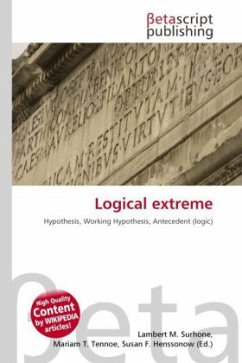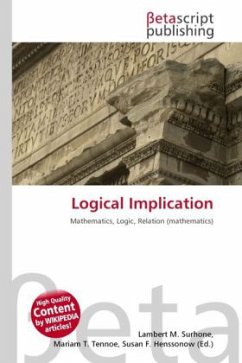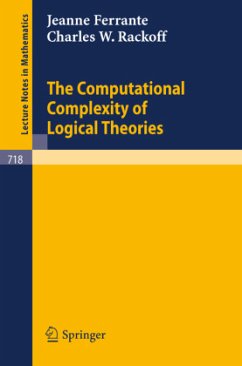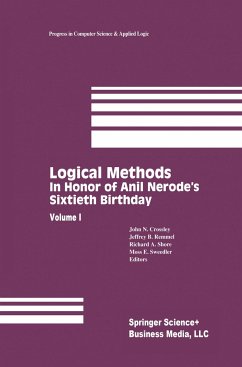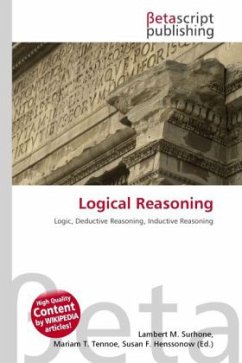
Logical Reasoning
Versandkostenfrei!
Versandfertig in 6-10 Tagen
23,99 €
inkl. MwSt.

PAYBACK Punkte
12 °P sammeln!
High Quality Content by WIKIPEDIA articles! Deductive reasoning, also called Deductive logic, is reasoning which constructs or evaluates deductive arguments. In logic, an argument is deductive when its conclusion is a logical consequence of the premises. Deductive arguments are valid or invalid, never true or false. A deductive argument is valid if and only if the conclusion does follow necessarily from the premises. If the conclusion is false, then at least one of the premises must be false. And if a deductive argument is not valid then it is invalid. A valid deductive argument with true prem...
High Quality Content by WIKIPEDIA articles! Deductive reasoning, also called Deductive logic, is reasoning which constructs or evaluates deductive arguments. In logic, an argument is deductive when its conclusion is a logical consequence of the premises. Deductive arguments are valid or invalid, never true or false. A deductive argument is valid if and only if the conclusion does follow necessarily from the premises. If the conclusion is false, then at least one of the premises must be false. And if a deductive argument is not valid then it is invalid. A valid deductive argument with true premises is said to be sound; a deductive argument which is invalid or has one or more false premises or both is said to be not sound (unsound).



